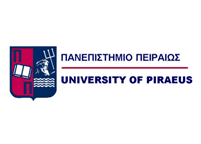The student will focus on enabling digital technologies (e.g. AI, knowledge management and cloud-based platforms), applications and tools to assist conducting/evaluating co-creation. Aim of their research project will be to develop, experiment and validate open-source disruptive technologies, platforms and tools to enable Big data, AI and knowledge management techniques to facilitate evidence-based co-creation services in Health Cascade use cases.
Within the realm of their doctoral program the student will:
• Participate in the requirements analysis of the needs of the evidence-based co-creation use cases in the different settings (school, work, healthcare, community).
• Will conduct an in-depth literature review to identify the state of the art of the technologies and define the research question of the Phd thesis. The student will explore and understand the capabilities of cloud-based technologies and AI techniques as enabling technologies to conduct evidence-based co-creation methodologies.
• Will participate in the definition of architecture design of the enabling co-creation tools and the relevant methodologies for testing and evaluation (baselines, quality of service and others) of these tools.
• Will participate in the development of the enabling tools to support the co-creation process. The development process will utilize open-source tools and platforms since the student will develop, experiment and validate open-source disruptive technologies, platforms and tools to enable Big data, AI and knowledge management techniques to facilitate evidence-based co-creation services in Health Cascade use cases (education, workplace , health care and community).
• Part of the Phd thesis will include prototypes to facilitate the evidence-based co-creation practices. We expect the students research activities to demonstrate the ability of disruptive technology to impact the co-creation and evidence-based processes in the civil and private sectors of life (education, workplace, health care and community)
The student will gain experience by working on large Health projects using intelligent digital environment and platforms to co-design and validate use cases (for two months (Month 12) in the SingularLogic company https://portal.singularlogic.eu/en and for two months (Month 24) in the Neotrope company https://neotrope.fr/) and will gain experiences for three months (M31) on e/mHealth applications in Umea.
The student will be based in the National Centre for Scientific Research “Demokritos” (www.demokritos.gr)/ Institute of Informatics & Telecommunications (https://www.iit.demokritos.gr/) premises in Athens/Greece.
The National Center of Scientific Research Demokritos is the largest multidisciplinary Research Centre of Greece with approximately 180 Researchers in tenured and tenure-track positions and over 500 Research Personnel working in projects funded mainly by grants from State Funds, the European Union and Private Industries.
As a Public Institution in the national agenda for a Unified Higher-Education/Research Space, Demokritos participates in accredited Graduate Programs in collaboration with University Departments in Greece and abroad. Doctoral students at the Centre benefit from a multidisciplinary research environment and funds originating either from National or European research programs or Fellowships from the State, or directly from Demokritos in collaboration with Public Benefit Organizations such as the Stavros Niarchos Foundation and Industries. The Institute of Informatics and Telecommunications (IIT) within NCSR focuses on research and development in the areas of Telecommunications, Networks, Web Technologies and Intelligent Systems. The Institute pursues both long-term basic research as well as applied research by implementing well defined R&D projects. It plays an active role in training new research personnel providing scholarships at graduate and post-doctoral level and their employment in research projects. Particular emphasis is given to the exploitation of research results and its dissemination to the public.
The student will be enrolled in the doctoral program of the University of Piraeus/ Department of Digital Systems.
The University of Piraeus https://www.unipi.gr/unipi/en/ was founded as a "School of Industrial Studies" in 1938 by the Association of Industrialists and Craftsmen, in association with the Federation of Public Limited Companies Greece intending to provide economic, legal and technical education to industrial executives. The ICT School, one of the four Schools composing University of Piraeus, was established in 2013 and consists of two departments, the Department of Informatics and the Department of Digital Systems. The vision of the school is to establish the School as a top choice for young people willing to study high-standards ICT, for research groups seeking high-quality collaborators in ICT-related research fields, for the community, in general, towards the social good.
The Department of Digital Systems
(https://www.unipi.gr/unipi/en/psif-home.html) offers a four-year
Undergraduate Programme in "Digital Systems" (240 ECTSs), two
Postgraduate Programmes in "Technology Education and Digital
Systems" (90 ECTSs) and in "Techno-economic Management and
Digital Systems Security" (90 ECTSs) and Ph.D. studies. The Ph.D. Programme
is a research program leading to a Ph.D. degree in the following main areas:
· Network-Oriented Systems and Services
· Digital Health Services
· Telecommunication Networks and Integrated Services
· Security Systems
· Intelligent Systems and Multimedia Technologies
· Telecommunication Systems
· Technology – Enhanced Learning
The student will be supevised by Dr Padadopoulos Homer (NCSRD), Dr Pappa Dimitra (NCSRD) and Prof Efthymoglou George (UNIPI), togehter with epxerts from the SingularLogic, Neotrope and Umea.

 Continue with Facebook
Continue with Facebook

